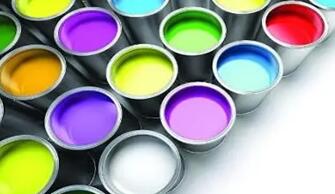What are the advantages of acrylic emulsion?
Acrylic emulsion, a type of water-based paint, offers several advantages that make it a popular choice in the world of coatings and finishes. These advantages have contributed to the widespread use of acrylic emulsions in a variety of applications, including interior and exterior paints, adhesives, textiles, and more. Here are some of the key advantages of acrylic emulsion:
Water-Based Formulation: One of the most significant advantages of acrylic emulsion is its water-based nature. Unlike solvent-based paints, acrylic emulsions emit fewer volatile organic compounds (VOCs), which makes them more environmentally friendly and safer for both application and long-term use. Low VOC emissions contribute to better indoor air quality and reduced environmental impact.
Quick Drying: Acrylic emulsions dry relatively quickly, which is a practical benefit for both professional painters and DIY enthusiasts. Faster drying times mean shorter waiting periods between coats and quicker project completion.
Durability: Acrylic emulsions are known for their excellent durability. They form a tough, flexible, and long-lasting film when applied to surfaces. This durability makes them suitable for high-traffic areas, such as floors and exteriors, where the coating needs to withstand wear and tear.
Resistance to Ultraviolet (UV) Radiation: Acrylic emulsions are resistant to UV radiation, which means they can maintain their color and finish even when exposed to sunlight. This makes them an ideal choice for exterior applications, such as outdoor furniture and architectural surfaces.

Good Adhesion: Acrylic emulsions adhere well to a wide variety of surfaces, including wood, concrete, metal, and plastics. Their strong adhesion ensures that the coating remains firmly attached, even in challenging conditions.
Color Retention: These emulsions are known for their color retention properties. They do not yellow or fade as easily as some other types of paints, maintaining the original appearance of the surface over time.
Mildew and Mold Resistance: Acrylic Polymer Emulsion are often formulated to resist mildew and mold growth. This is particularly important in areas with high humidity or where water exposure is likely.
Easy Cleanup: Because acrylic emulsions are water-based, cleaning brushes, rollers, and other painting tools is simple and can be done with water and soap, reducing the use of harsh chemicals.
Versatility: Acrylic emulsions can be used on a wide range of surfaces, from interior walls and ceilings to exterior cladding and artistic canvases. They are also used in various industries, including textiles, adhesives, and automotive applications.
Low Odor: Acrylic emulsions emit less odor compared to solvent-based paints. This is advantageous for indoor applications, where strong odors can be a nuisance or a health concern.
Flexibility: Acrylic emulsions are known for their flexibility, which allows the coating to expand and contract with temperature and humidity changes. This flexibility prevents cracking and ensures the integrity of the coating.
In summary, acrylic emulsions offer a wide range of advantages, making them a preferred choice for many painting and coating projects. Their water-based, low-VOC formulation, quick drying time, durability, UV resistance, adhesion, and versatility make them suitable for numerous applications, both indoors and outdoors. Whether for home improvement, industrial use, or artistic endeavors, Haoze acrylic emulsions are valued for their performance and environmental benefits.
162
0
0


Comments
All Comments (0)